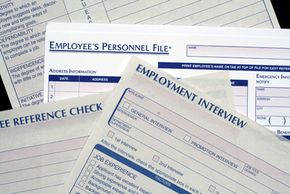A manager for the fictitious Smith & Co. manufacturing faced a dilemma. The company's newest product in development showed great promise, but also represented a departure from the company's in-house expertise. To design and engineer the product, Smith & Co. would require an entire new line of engineers with specialized skills and equipment. However, the cost would take a chunk out of the company's projected profits.
That wasn't the manager's only issue. The product included a component that Smith & Co. didn't manufacture. Adding that equipment, and training workers to use it, would take time -- too much time. The market was ready for their product now. The delay would cost the company.
Advertisement
What could the manager do? He might turn to outsourcing to solve these problems and help his company succeed.
Outsourcing is when a company hires another individual or company to perform a specialized task, whether it's making a product or providing a service such as human relations or information technology.
Think of an individual home owner, for instance, who needs his house painted. He could go out and buy paint brushes, rollers, scaffolding, ladders and insurance and then, take the risk that he can do a good enough job -- and not fall off the scaffolding! He'll also be stuck with the expense of purchasing all that equipment for a task that he only needs to do once every few years.
Or, he could just hire a painting contractor. The decision to outsource works in the same way.
Many countries, including the United States, outsource frequently. As of 2004, U.S. companies had outsourced anywhere between 300,000 to almost 1 million jobs [source: BusinessWeek]. Goldman Sachs projected that number would grow to 6 million by 2014.
What exactly is outsourcing, and how does it apply in the business world? Is it more economical to outsource locally versus overseas? And, which business functions are most likely to be outsourced? Go to the next page to find out.
Advertisement








